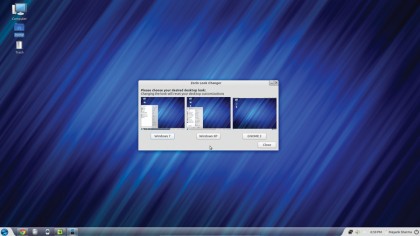Ubuntu derivatives: 5 of the best Ubuntu-based distros
Our pick of the best Ubuntu re-spins
Sign up for breaking news, reviews, opinion, top tech deals, and more.
You are now subscribed
Your newsletter sign-up was successful
Bodhi Linux goes down even further. You can install it on a system with 128MB of RAM and it only takes up 2.5GB of hard disk space. The good thing about Bodhi is that it can scale up just as easily on a more recent, well-endowed machine. Just use its package manager to fetch the application suite of full-featured software instead of the lighter-weight packages.
Zorin OS gives you the best of both worlds. While the normal version is based on Gnome and requires the same amount of resources as Kubuntu, there's also a LXDE-based Lite edition for older computers.
Verdict
Ubuntu Gnome - 1/5
Kubuntu - 3/5
Lubuntu - 4/5
Bodhi Linux - 5/5
Zorin - 4/5
Documentation and support
One of the reasons Ubuntu is so popular is the support infrastructure and its active community of users. But how do the derivatives fair? Ubuntu Gnome has a growing community with its own IRC channel and a mailing list, and while it doesn't have forum boards it regularly dispenses help to users on its official Google+ Community page.
The oldest Ubuntu spin, Kubuntu, has a very active community that hosts KDE-specific forums, mailing lists and an IRC channel. The distro also has information on getting help in languages other than English, and there's a comprehensive ebook guide available on ubuntuguide.org.
Lubuntu hosts its documentation and support on Ubuntu infrastructure. There's documentation about the various applications and how to set up different components. The link to the forums shows all posts with the tag 'lubuntu' on ubuntuforums.org. You can interact with Lubuntu developers on its mailing lists and IRC.
Sign up for breaking news, reviews, opinion, top tech deals, and more.
Zorin OS has a very rudimentary installation guide, though they have forum boards with a tutorial section. Shelling out €5 will get you premium technical support for three issues.
Bodhi Linux has the most organised support and documentation. There's a quick start guide, and detailed guides on Enlightenment and customising Bodhi. It's forum boards even dispense advice on ARM-powered devices.
Verdict
Ubuntu Gnome - 2/5
Kubuntu - 3/5
Lubuntu - 2/5
Bodhi Linux - 5/5
Zorin - 2/5
Custom Tools

As we've already said, what sets our contenders apart from the myriad of Ubuntu-based distros is the developer effort that's gone into fitting the distro to its user base.
Consider Zorin, for example. It's designed specifically for Windows users who want easy and smooth access to Linux, so it includes a custom Look Changer application that lets you change the interface at the touch of a button. In the freely downloadable edition of the OS, the application offers a choice of Windows 7, XP or Gnome 2. Donate €10 for the Ultimate edition and you also get support for Mac OS X, Unity and Windows 2000. Zorin's Web Browser Manager makes it easy to install different browsers and the distro also includes a redesigned Ubuntu Software Center.
Bodhi Linux is all about custom tools. It ships with the Eccess System Tool for basic system administration tasks, such as managing users and time. There's a board on the Bodhi Linux forum dedicated to custom apps written in Elementary and Python that are available in the official repositories. Another highlight is its online App Center, which makes installing apps easier by grouping them into software bundles and creating custom packages of similar tools. For example, if you want to install a selection of different educational apps, you can install the Educational Pack, which includes TuxPaint, TuxTyping, Gcompris etc.
The developers of Lubuntu dealt with package management by creating a lightweight version of Ubuntu Software Center called - you guessed it! - Lubuntu Software Center. This arranges software in different categories, you mark apps that you want to install, add them to the apps basket and install them all in one go. The tool also has an Expert mode for installing individual libraries.

With almost two decades of writing and reporting on Linux, Mayank Sharma would like everyone to think he’s TechRadar Pro’s expert on the topic. Of course, he’s just as interested in other computing topics, particularly cybersecurity, cloud, containers, and coding.